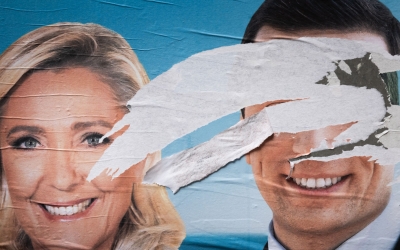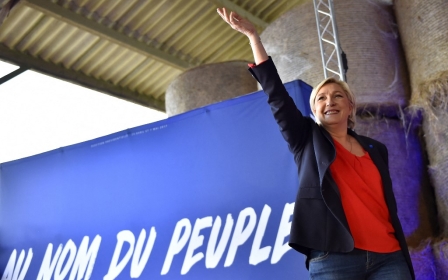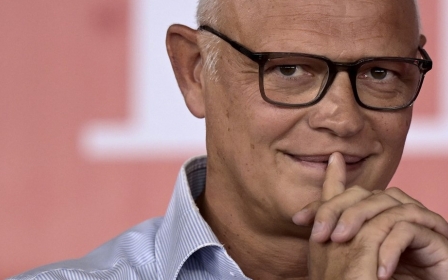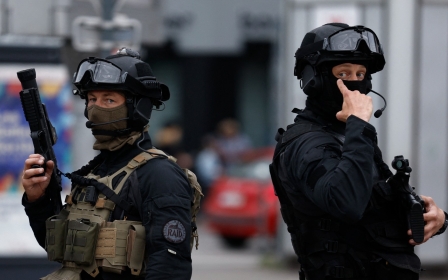France is on the brink of handing power to far-right extremists
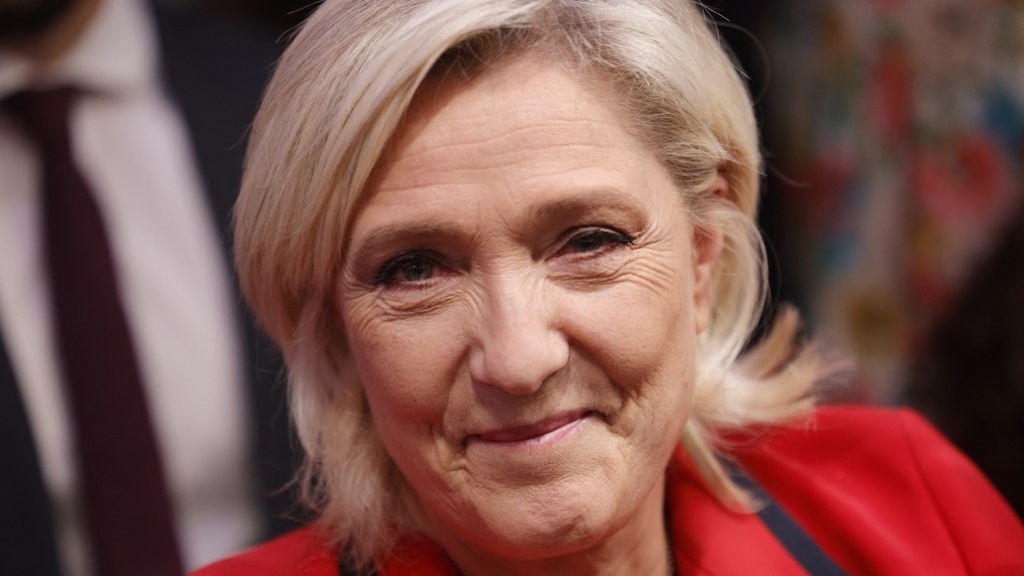
The upcoming legislative elections in France could see a far-right party lead the country for the first time. This vote is as important as it is uncertain, marred by racism and a dangerous exploitation of antisemitism.
How did we get here? Millions of French people have been asking this question since the far-right National Rally earned 31 percent of the popular vote in European elections earlier this month, far ahead of competing lists in the country, including the president’s own party.
President Emmanuel Macron swiftly called snap elections, which are set to be held between 30 June and 7 July - and the National Rally is the big favourite. For the first time under the Fifth Republic, the far right could govern the country.
But is this really a surprise?
Since that famous evening in April 2002 when Jean-Marie Le Pen reached the second round of the presidential election for the first time, the once-marginal extreme right has gained ground. Today, the National Rally is a party like any other.
New MEE newsletter: Jerusalem Dispatch
Sign up to get the latest insights and analysis on Israel-Palestine, alongside Turkey Unpacked and other MEE newsletters
Far-right ideas have become permanently established in public debate. It is now customary to speak of a “migratory crisis” or “national preference”. Questions that once caused scandal are now common: “Are you in favour of wearing a headscarf in public spaces? Do you think there are too many immigrants in the country?”
It has been more than half a century since the National Rally, formerly known as the National Front, placed “national preference” (also known as “national priority”) at the heart of its programme. “One million unemployed is one million too many immigrants! France and the French first” noted one of the party’s 1970s-era posters.
Islamophobia and identity politics
Since its creation in 1972, the National Rally has prided itself on being the only “defender of the French”, accusing its adversaries of belonging to the “globalist” elite and of promoting mass immigration, impoverishment and insecurity.
The party’s key ideas have increasingly made their way into the mainstream, particularly since the 2002 presidential election, when Jacques Chirac, who ultimately won by a huge majority, focused his campaign on “insecurity”.
This is one more step towards the total normalisation of the National Rally - and it's probably a step too far
In the global context since 9/11, Islamophobia has become a powerful governmental and electoral lever. Identity politics is now a standard feature of the 24-hour news cycle, with such rhetoric amplified on social media.
The electorate’s constant exposure to racist themes, such as the construction of the “immigrant problem”, has made the far right a force to be reckoned with in French politics. But racism predates the creation of the National Rally; what has changed in recent years is its politicisation, and its articulation within a specific worldview.
Sociologist Felicien Faury has cited the importance of racist motives in the far-right vote - but it's multifaceted racism associated with various social problems, which cannot be reduced to questions of unemployment, economic crisis and deindustrialisation.
Indeed, National Rally voters respond to a “passion for inequality”, through which rich and poor alike find “a multitude of inferiors over whom they must at all costs maintain their superiority”, as French philosopher Jacques Ranciere has described the term. The National Rally benefits from a culture of hatred at the heart of neoliberal inegalitarian logic.
Defence of 'values'
The anti-colonial protest movements of the 1960s saw the emergence of new themes in Europe and the United States, as well as the participation of groups previously excluded from the political field. A “crisis of governability” carrying an existential threat to the very survival of the capitalist model was theorised by conservative intellectuals. They thus developed a successful counter-movement to safeguard capitalism and restore the authority of the state, which they believed to be under threat.
The desire to embody a strong state is achieved, in particular, by the defence of “values”, making it possible to avoid the question of major economic orientations. Within this framework, racism is central to the debate, thus placing at the heart of the political game an extreme right committed to neoliberal creeds.
The “national preference”, major legislation against “Islamism”, exclusion of dual nationals from certain positions, and heightened repression of political protests - the National Rally has not hidden its intentions should it win elections on 7 July.
The party benefits from the racist and security-driven policies of previous governments, from which a new discriminatory and repressive system could emerge.
From bans on gatherings, to the hunt for Muslim “religious signs”, the tools are in place and ready to use.
This is concerning for all defenders of rights and freedoms in France. But panicked calls to boycott the far-right formation are ineffective, serving only to swell the ranks of abstention, which primarily harms left-wing forces.
While the National Rally proudly displays its racist intentions, a certain anti-racist discourse has been diverted in the service of denigrating the left-wing France Insoumise party, accused of spreading antisemitism amid its support for the Palestinian cause. Antisemitism is thus being exploited in such an obvious way that any serious debate on the subject - and on racism in general - becomes impossible.
This narrative of competing racisms on the eve of a crucial vote serves only to minimise the dangers of the far right coming to power. This is one more step towards the total normalisation of the National Rally - and it’s probably a step too far.
The views expressed in this article belong to the author and do not necessarily reflect the editorial policy of Middle East Eye.
Middle East Eye delivers independent and unrivalled coverage and analysis of the Middle East, North Africa and beyond. To learn more about republishing this content and the associated fees, please fill out this form. More about MEE can be found here.



